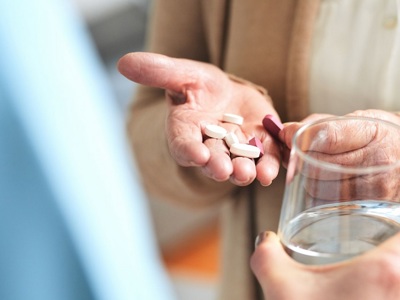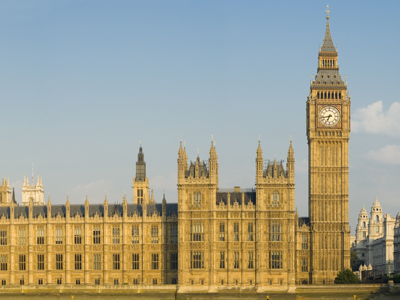
Cumberlege Report first anniversary of publication
On the first anniversary of the publication of the Cumberlege Report, lawyers representing families affected have written to the Secretary of State for Health.
Posted on 08 July 2021
On the first anniversary of the publication of the Cumberlege Report, lawyers representing families affected by epilepsy medication Sodium Valproate have written to the Secretary of State for Health, Sajid Javid to ask him to take on board its recommendations.
Since Lady Cumberlege published her report First Do No Harm on July 8, 2020, an apology has been issued by health minister Nadine Dorries and a commitment has been made to appoint an independent patient safety commissioner.
However, of the other seven recommendations made by the baroness following the two-year Independent Medicines and Medical Devices Safety Review into the impact of sodium valproate, vaginal mesh and Primodos, those which relate to financial redress remain outstanding or unadopted.
They are:
- An independent Redress Agency for those harmed by medicines and medical devices, administered on a non-adversarial process.
- A cost-of-care-scheme: to allow for discretionary payments to meet the cost of additional needs caused by avoidable harm.
Leigh Day law firm represents organisations that speak for families whose children have been injured by the use of epilepsy anti-convulsant medication Sodium Valproate during their mothers’ pregnancies: FACSaware, Valproate Victims, and OACS.
Families from all three organisations shared their stories with Lady Cumberlege during her investigations and when she presented her findings in the House of Lords last year, she said: “Their testimony haunts me and impels me to right their wrongs.”
One such was Susan Cole who was prescribed sodium valproate (Epilim) in 1983. Her daughter Hannah was born in 2000 and one year later, following a referral from her paediatrician, she was diagnosed with Fetal Valproate Syndrome by a team of geneticists at Great Ormond Street Hospital.
Susan said:
“Since 1973 this drug was known to be high risk and yet neurologists failed to fully inform women with epilepsy of the risks. Most mothers like me had no idea that the risks were so dreadfully high or that they would have such a life-long impact on our children, but neurologists should have been fully aware. In 2000 the risk of major malformations were already 10 times as high as with other women, but this was rarely explained to us.

Susan said:
“Since 1973 this drug was known to be high risk and yet neurologists failed to fully inform women with epilepsy of the risks. Most mothers like me had no idea that the risks were so dreadfully high or that they would have such a life-long impact on our children, but neurologists should have been fully aware. In 2000 the risk of major malformations were already 10 times as high as with other women, but this was rarely explained to us.
“Along with some amazing families and campaigners, I have devoted 20 years to fight for knowledge, recognition, justice, compensation, and policy change. The Labour government promised a Public Inquiry and conservative governments seem to think that our needs are met through the current healthcare system. We even tried suing the drugs company. I don’t think it’s right that such a scandalous failure of our healthcare (and justice) systems should be able to leave families without answers, for so many years.
“It is now three years since the start of the IMMDS Review / One year after publication of the excellent First Do No Harm report, yet we are still waiting to see how the government will implement the recommendations. Our families can’t wait until the government fixes the NHS or medicines regulation - we need and deserve redress now, so that we can move forward with autonomy and with dignity.”
In the letter to Sajid Javid, Leigh Day solicitor Zahra Nanji reminded the Secretary of State that sufferers and their families have been let down for decades and have been left to struggle alone. The letter renewed calls to help these individuals without further delay.
Leigh Day solicitor Zahra Nanji said:
“Expecting individuals and their families to rely upon State Benefits, Special Education and Social Care which is often inadequate to meet their needs cannot continue. Families must be able to rely upon adequate support.
“Redress needs to be provided at level that is commensurate to meet the needs of suffers and their families where the impact of the medicines and devices they were given is often catastrophic and life-altering.
“The recommendations made by Baroness Cumberlege in the report came after two years of investigation and following almost 30 years of lobbying by families to be heard. The recommendations made highlighted the need to address shortcomings within the health and care system. Sufferers have been let down time and again by a health and care landscape which allowed them to free-fall through the cracks without a rescue net, without recourse to much needed financial support and assistance for harms they have suffered through no fault of their own.
“One year on from the publication of the report, the Government must now act and do the right thing by implementing the recommendations for financial redress.”

Cumberlege Review: Sodium Valproate organisations' response to First Do No Harm report
Groups representing families affected by the use in pregnancy of the epilepsy drug Sodium Valproate have delivered their response to the Cumberlege Review, published July 8.

Sodium Valproate patient groups will press for action on Cumberlege Review recommendations
Groups representing families affected by the use in pregnancy of the epilepsy drug, Sodium Valproate, are determined to press on to see the recommendations of the Cumberlege Review fulfilled as soon as possible.



